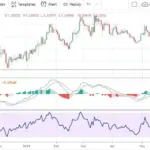In many parts of the world, access to financial services has long been a privilege rather than a right. Millions of people — particularly in emerging markets — remain unbanked or underbanked, meaning they lack access to basic services like savings accounts, credit, or insurance. However, the rise of financial technology (fintech) is rapidly changing this landscape. By harnessing digital innovation, fintech is not only reshaping how people handle money but also creating new pathways for financial inclusion and economic empowerment.
1. The Global Financial Inclusion Challenge
According to the World Bank’s Global Findex Report, over 1.4 billion adults globally remain unbanked, with the majority residing in Africa, Asia, and Latin America. Traditional banks often overlook these populations due to high operational costs, limited credit histories, or the lack of formal identification.
For individuals in rural or low-income areas, opening a bank account or applying for a loan can be nearly impossible. However, most of these same individuals own a mobile phone — and that’s where fintech steps in.
2. Mobile Banking: Banking the Unbanked
Mobile banking has become one of the most powerful tools for promoting financial inclusion. Through mobile wallets and payment apps, users can store, send, and receive money without visiting a bank branch.
A leading example is M-Pesa in Kenya, a mobile money service that revolutionized how people in East Africa transact. Since its launch, M-Pesa has provided millions with access to digital payments, microloans, and savings products — transforming entire local economies.
In other regions, apps like GCash in the Philippines and Paytm in India have achieved similar success, allowing users to pay bills, make purchases, and even invest directly from their smartphones.
3. Digital Credit and Microfinance Reinvented
Fintech platforms are reimagining microfinance by using AI-driven credit scoring to evaluate borrowers based on alternative data — such as mobile usage, payment history, or social behavior — rather than traditional credit reports.
This innovation allows small business owners, gig workers, and low-income individuals to access short-term loans and working capital without collateral. Startups like Tala, Branch, and Kiva have made significant strides in this area, lending billions of dollars to underserved communities around the world.
By democratizing access to credit, fintech is helping entrepreneurs grow their businesses, supporting job creation, and stimulating local economies.
4. Expanding Access Through Digital Payments
Fintech also plays a crucial role in digitizing cash economies. In many emerging markets, most transactions still occur in cash — a major barrier to formal financial participation.
Through QR code payments, contactless transactions, and cross-border remittance apps, fintech firms are reducing dependency on physical money. Digital payments not only improve convenience but also create a digital footprint, enabling users to build credit histories and access other financial products.
Moreover, cross-border fintech solutions like Wise (formerly TransferWise) and Remitly have made international remittances faster, cheaper, and more transparent — a major benefit for migrant workers and their families.
5. Insurance and Savings for All
Fintech innovation extends beyond payments and lending. Insurtech and digital savings platforms are making financial protection accessible to low-income populations for the first time.
Micro-insurance services allow users to insure crops, livestock, or health expenses for as little as a few cents per day. Meanwhile, automated savings apps help users set aside small amounts regularly, fostering better financial habits and resilience against economic shocks.
6. The Role of Governments and Regulation
Governments and regulators in emerging markets are increasingly recognizing fintech’s potential. Many are creating regulatory sandboxes to encourage innovation while ensuring consumer protection.
For example:
- India’s Unified Payments Interface (UPI) has created a unified digital payments infrastructure used by hundreds of millions.
- Nigeria’s Central Bank supports fintech startups through open banking frameworks.
- Indonesia and the Philippines are expanding digital ID programs that make it easier to verify users online.
Such initiatives are crucial in ensuring that fintech growth remains sustainable, inclusive, and secure.
7. Challenges and the Road Ahead
Despite impressive progress, challenges remain:
- Digital literacy gaps still limit fintech adoption in rural areas.
- Cybersecurity risks must be addressed to protect users’ data.
- Connectivity issues persist in regions with poor internet infrastructure.
Addressing these barriers requires collaboration between governments, fintech companies, telecom operators, and financial institutions. Together, they can create ecosystems that empower users safely and effectively.
8. The Future of Financial Inclusion
Looking ahead, the convergence of AI, blockchain, and mobile technology will accelerate financial inclusion even further. Blockchain-based digital identities could give millions of unbanked individuals a verifiable financial profile, while AI can tailor financial products to local needs.
By 2030, fintech could bring over a billion people into the formal financial system — unlocking new opportunities for economic growth and equality.
Conclusion
Fintech is more than a technological revolution; it’s a social and economic movement. By breaking down barriers to access, reducing costs, and empowering individuals with digital tools, fintech is driving meaningful change across emerging markets.
From mobile payments to microloans and digital savings, fintech is proving that financial inclusion is not just a possibility — it’s already happening. As innovation continues to spread, the promise of a more inclusive financial future is within reach for everyone, everywhere.















